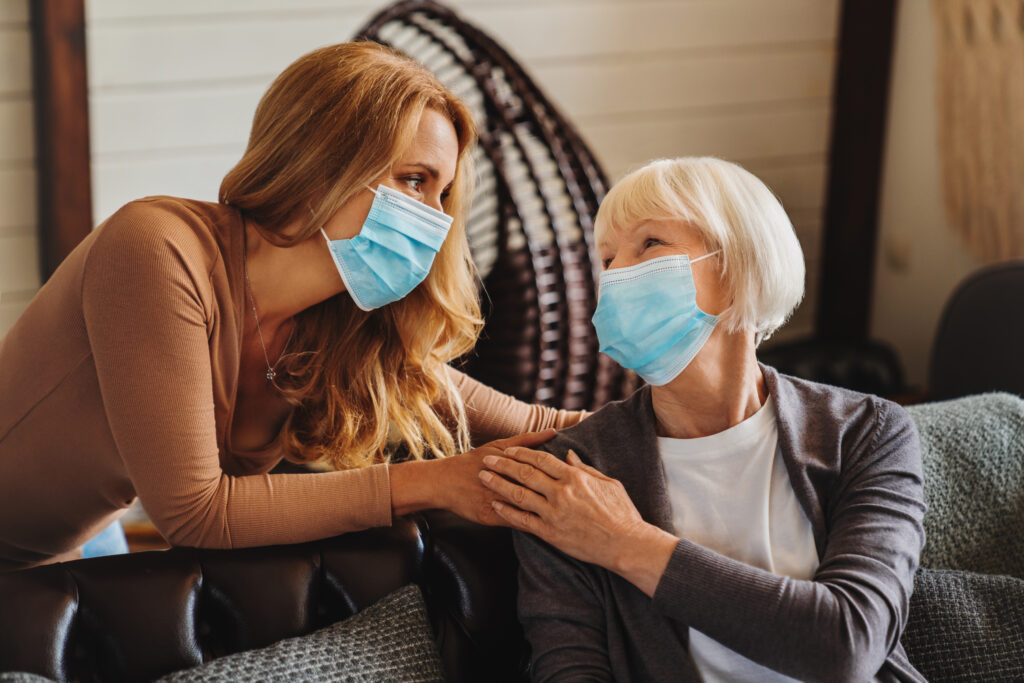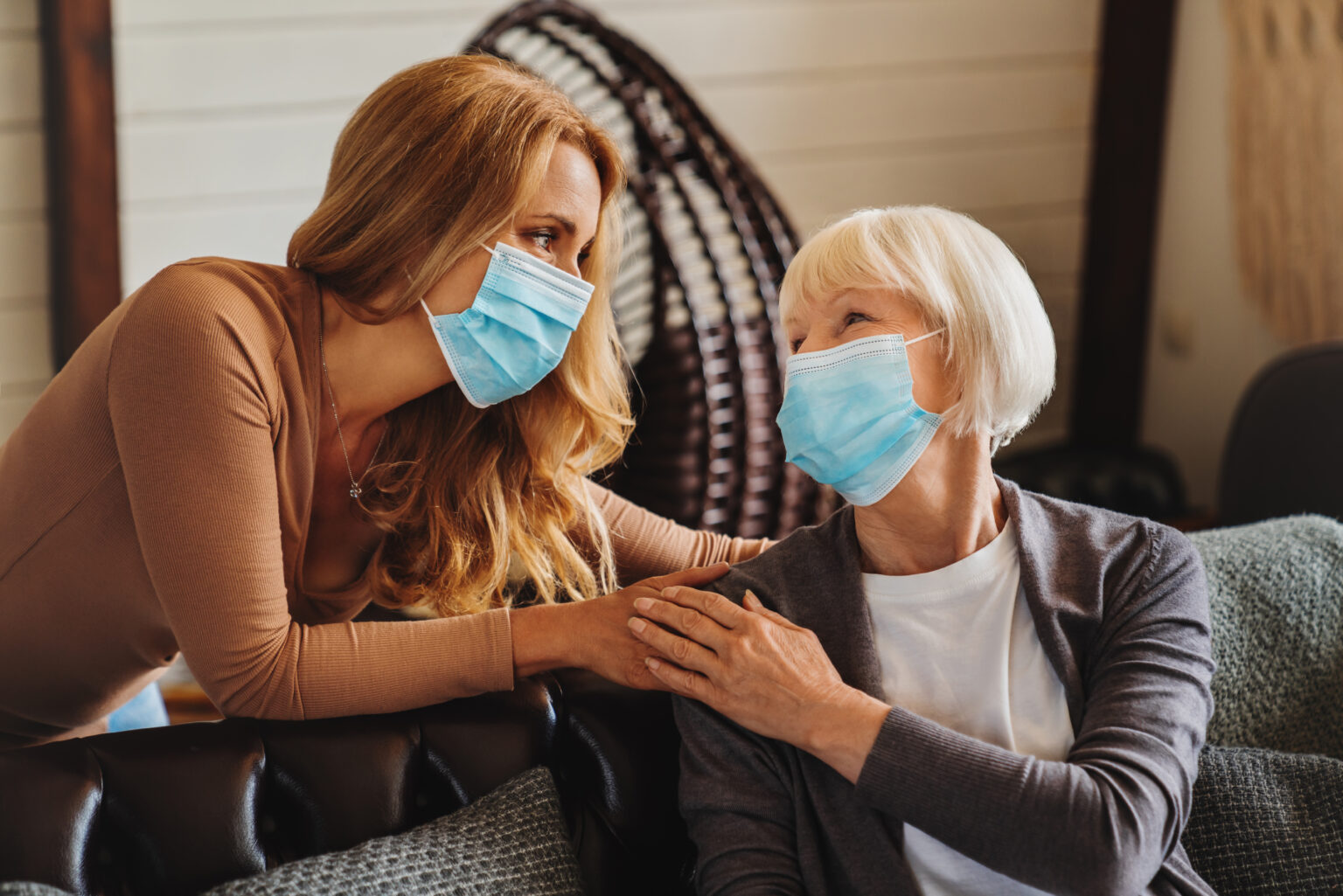
Last Updated: 04/27/2020
This document has been updated to include new information from our original post on 03/20/20. Please continue visiting this page and the COVID-19 Resource Center within the Outcomes4Me app for the most up to date information.
“What is the danger of continuing chemotherapy in light of the coronavirus?”
“Am I at high risk right now because of the COVID-19?”
“What do cancer patients need to be concerned about with the coronavirus and is it only if they have had chemo?”
These are just a few of the questions we have received in the past couple of weeks from our breast cancer patients related to COVID-19. While the coronavirus epidemic is impacting our communities in many ways, the fear of being exposed to coronavirus can be worse for breast cancer patients, especially if you have a compromised immune system from treatment. This blog compiles the latest evidence from a few key sources that will hopefully help you better understand what the coronavirus means to cancer patients:
1) CDC (Center for Disease Control, US)
Source: https://www.cdc.gov/coronavirus/2019-ncov/index.html
There are no known vaccines or proven treatments for COVID-19. According to the CDC blog on cancer, the best remedy for COVID-19 is prevention. To reduce your risk of getting it, you should stay home as much as possible, avoid close contact with others, keep your hands clean with good washing techniques, and make sure your healthcare team is prepared to prevent you and others from possible exposures. In public places, face masks are recommended or required to help decrease the spread of the virus.
Read more about CDC recommendations in the Outcomes4Me COVID-19 resource center, which you can link to from the homepage.
2) ASCO (American Society of Clinical Oncology)
Source: https://www.asco.org/asco-coronavirus-information/care-individuals-cancer-during-covid-19.html
ASCO has compiled resources from leading cancer organizations to summarize the current guidance as related to COVID-19:
Surgery:
“Elective surgeries” at in-patient facilities will be rescheduled if possible. However, clinicians and patients will need to make individual determinations based on the potential harms of delaying needed cancer-related surgery; in many cases these surgeries cannot be considered “elective”.
In some situations (e.g. early stage breast cancer) where neoadjuvant therapy is available but not routinely considered, it may be reasonable to consider neoadjuvant therapy instead of surgery or simply delaying surgery. The risks of tumor progression with delay in definitive surgery should be weighed against the potential added burden on hospital resources, case complexity and patient risk of exposure to COVID-19.
Radiation:
If hypofractionated schedules are considered reasonable, they should be considered. ASCO recognizes the risks of delay in treatment for patients with rapidly progressing, potentially curable tumors may outweigh the risks of COVID-19 exposure/infection; however, patients receiving radiation for symptom control or for other reasons could potentially be safely delayed. Patients should check with their radiation oncologist to determine the most appropriate course of action for their treatment.
Chemotherapy:
At this time, there is no direct evidence to support changing or withholding chemotherapy or immunotherapy in patients with cancer. The balance of potential harms that may result from delaying or interrupting treatment versus the potential benefits of possibly preventing or delaying COVID-19 infection is very uncertain. Your doctor should use clinical decision making to consider if there are factors such as risk of recurrence, the number of cycles you’ve completed, and your tolerance of treatment to determine if it should be delayed, modified, or interrupted for your specific case.
To note, ASCO guidance states that patients in “deep remission” who are receiving maintenance therapy may have the option to stop. It also recommends switching from IV to oral treatments if possible to reduce the frequency of clinic visits. In women with ER+ early-stage breast cancer where the absolute benefit of adjuvant chemotherapy may be quite small, risk of infection with COVID-19 may be considered as an additional factor in weighing the different options available to you.
If local transmission affects your local cancer center, reasonable options may include giving a chemotherapy break for two weeks, arranging infusion at an unaffected satellite unit, or arranging treatment with another facility that is not affected.
Read more about ASCO recommendations in the Outcomes4Me COVID-19 resource center, which you can link to from the homepage.
3) NCCN (National Cancer Coalition Network)
Source: https://www.nccn.org/covid-19/
The NCCN has released guidance regarding the potential challenges and solutions for cancer patients during COVID-19.
Some of the anticipated challenges include staff shortages due to potential exposure and/or school closings, limitations of resources such as hospital beds, mechanical ventilation, and other equipment, and the impact on treatment from travel bans, including reduced access to international donors for allogeneic stem cell transplantation.
The authors recommend mitigating some of these concerns through proactive measures that include providing information to you via handouts, signs, web-based communication, and a dedicated phone line for questions and triage. They also recommend rescheduling “well” visits and elective surgeries, and deferring second opinion consultations (where care is already appropriately established), prioritizing the use of soap and water over hand gel, and moving procedures from inpatient to outpatient. Read more about COVID-19 guidance from the NCCN here: https://www.oncnursingnews.com/web-exclusives/nccn-offers-guidance-for-cancer-centers-amid-covid19-pandemic
Read more about NCCN recommendations in the Outcomes4Me COVID-19 resource center, which you can link to from the homepage.
Take charge – stay up to date.
Even though coronavirus is a worry for everyone, try not to be too anxious about it. By following the recommendations listed above, you can minimize your chance of being exposed to the virus while still continuing to receive your cancer treatment if possible.
Visit our resource center on the Outcomes4Me app for more updated information on COVID-19 and what it means for breast cancer patients.
If you have any questions, please feel free to ask them in the “ASK” tab on the Outcomes4Me app now available on iOS and Android. We will continue to update this post as the guidelines are updated.



